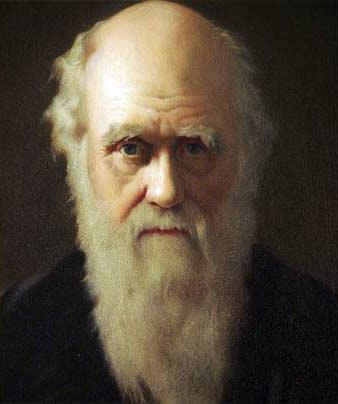Ill-health saved me from the distractions of society and amusement
 Charles Darwin
Charles Darwin
On 10 December 1831, as Charles Darwin waited for the voyage on HMS Beagle to begin, he suffered from chest pain and heart palpitations, but told no one at the time in case it stopped him from going on the survey expedition. During the voyage, he suffered badly from sea-sickness during the eighteen months he was at sea, but he spent much of the three years and three months he was on land in strenuous exploration. In Argentina at the start of October 1833, he collapsed with a fever. He spent two days in bed, and then memories of a young shipmate who had died of the fever persuaded him to take a boat down river to Buenos Aires, lying ill in his cabin until the fever passed. On 20 September 1834, while returning from a horseback expedition in the Andes mountains, he fell ill and spent the month of October in bed in Valparaiso, Chile. The voyage ended on 2 October 1836. On 20 September 1837, he suffered "an uncomfortable palpitation of the heart" and as "strongly" advised by his doctors, left for a month of recuperation in the countryside. In the spring of 1838 he was overworked, worried and suffering stomach upsets and headaches which caused him to be unable to work for days on end.He married Emma Wedgwood on 29 January 1839, and in December of that year as Emma's first pregnancy progressed, he fell ill and accomplished little during the following year.
As detailed above, for over forty years Darwin suffered intermittently from various combinations of symptoms such as: malaise, vertigo, dizziness, muscle spasms and tremors, vomiting, cramps and colics, bloating and nocturnal intestinal gas, headaches, alterations of vision, severe tiredness, nervous exhaustion, dyspnea, skin problems such as blisters all over the scalp and eczema, crying, anxiety, sensation of impending death and loss of consciousness, fainting, tachycardia, insomnia, tinnitus, and depression. These symptoms displayed by Darwin may have been diagnosed today as a form of dysautonomia.
Darwin desperately tried many different therapies, within the limitations of medical science of his time. He took all kinds of medicines, including bismuth compounds and laudanum, and even tried quack therapies, such as electrical stimulation of the abdomen with a shocking belt.
In his autobiography of 1876, Darwin wrote of his illness, emphasising that it had been brought on by "the excitement" of socialising:
Few persons can have lived a more retired life than we have done. Besides short visits to the houses of relations, and occasionally to the seaside or elsewhere, we have gone nowhere. During the first part of our residence we went a little into society, and received a few friends here; but my health almost always suffered from the excitement, violent shivering and vomiting attacks being thus brought on. I have therefore been compelled for many years to give up all dinner-parties; and this has been somewhat of a deprivation to me, as such parties always put me into high spirits. From the same cause I have been able to invite here very few scientific acquaintances. My chief enjoyment and sole employment throughout life has been scientific work; and the excitement from such work makes me for the time forget, or drives quite away, my daily discomfort. I have therefore nothing to record during the rest of my life, except the publication of my several books. ..
Contribution of Darwin's illness to his work
It is sure that Darwin's illness have contributed to his long and fruitful career in science. Darwin himself wrote about this, in his autobiographical "Recollections of the Development of my Mind and Character" (1876):
Lastly, I have had ample leisure from not having to earn my own bread. Even ill-health, though it has annihilated several years of my life, has saved me from the distractions of society and amusement.
Charles Darwin (1809 –1882) was an English naturalist, geologist and biologist, best known for his contributions to the science of evolution. He established that all species of life have descended over time from common ancestors and introduced his scientific theory that this branching pattern of evolution resulted from a process that he called natural selection, in which the struggle for existence has a similar effect to the artificial selection involved in selective breeding. By the 1870s, the scientific community and a majority of the educated public had accepted evolution as a fact. Darwin has been described as one of the most influential figures in human history.